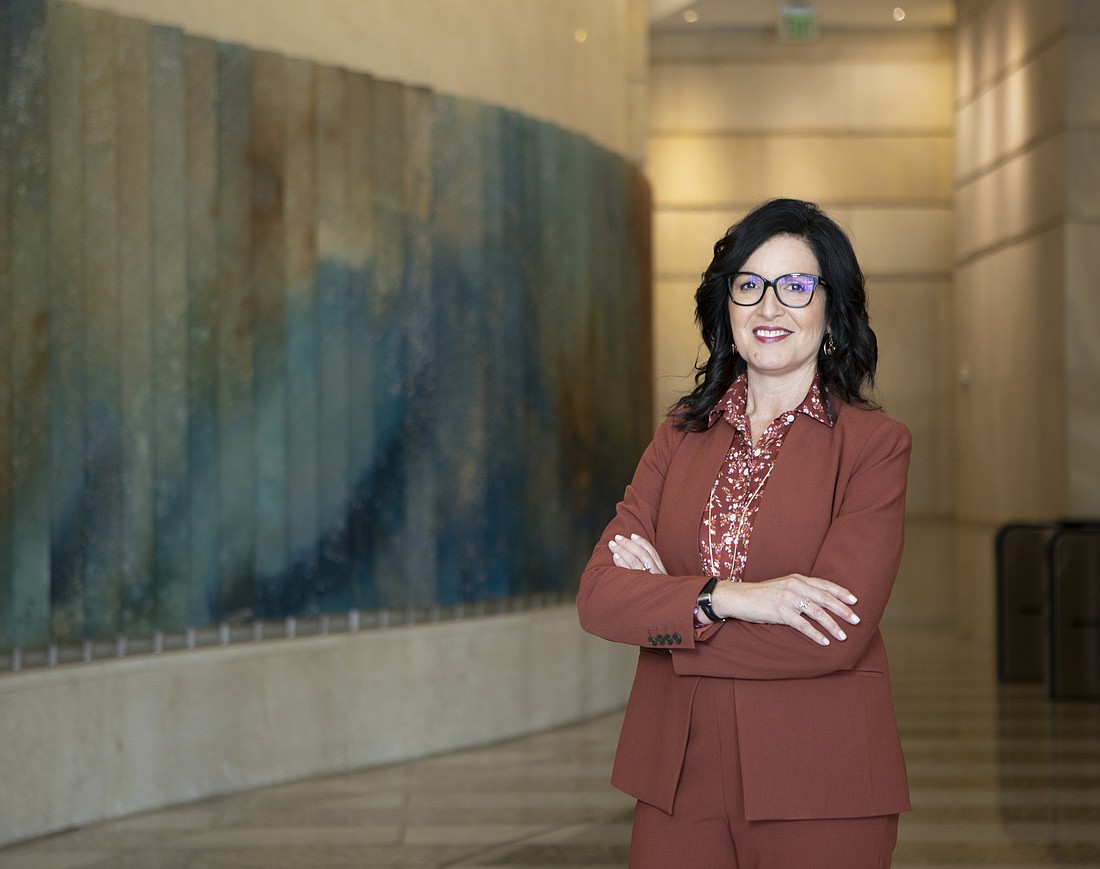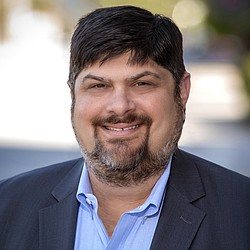1. The flow of a power company — meeting current demand while relentlessly planning for the future — means Melissa Seixas, Duke Energy Florida president, has to “keep one eye on the now and one eye on the horizon.”
On the horizon side, Charlotte, North Carolina-based Duke, like many of its energy sector peers, is working to modernize its energy grid. Seixas, based out of Duke’s Florida headquarters in downtown St. Pete, leads that effort in the Sunshine State, where the company has a 35-county territory, including Hillsborough, Pasco, Pinellas and Polk. Seixas has been with Duke Florida and its predecessor companies since 1986. Her first job, then with what was Florida Power, was writing permits and paperwork for pole locations. After a series of promotions, Seixas was named president of Duke Energy Florida in February 2021.
The modernization plan she oversees includes retiring coal plants on Crystal River, a process inching toward completion by the mid-2030s. The plan also includes continuing a massive investment in solar farms and other forms of renewable, cleaner energy. In October 2021, for example, Duke completed a 74.5MW facility in Duette, Manatee County that houses 227,000 solar panels. Up next? The company, Seixas says, is identifying more solar sites, focusing on North Florida and working with landowners, communities, governments and more.
“We update the site plan every year,” Seixas says. “We have to transform the business for the future.”
2. The current side of Duke Energy, meanwhile, involves doing what many businesses in the region have been forced to do in the past year: raise prices.
The Duke Energy rate hike — the company says a typical residential customer monthly bill using 1,000 kilowatt-hours will see about a 13% increase — was announced in September and starts this month. Seixas says the main reason for the rate hike stems from dramatic increases in gas and fuel prices. “Since the beginning of the year, natural gas prices have more than doubled, driven by increased domestic demand, flat natural gas production, strong LNG exports to Europe and Asia and low natural gas storage inventories,” the company said in the September statement announcing the increase. “The natural gas market has not stabilized and continues to be extremely volatile.”
Company officials emphasize the increases “are market-driven and passed through to customers with no markup…Duke Energy Florida does not profit from these increased fuel costs.”
The company, Seixas says, attempts to work with customers on payment plans and other techniques to bring down costs, including teaching good energy practices. While a lot of that information is available on the company’s website, Seixas doesn’t hold back when out and about in the community and she sees an energy-conservation opportunity. Like reminding people to turn off ceiling fans when they leave a room. “I’m always a blast at cocktail parties,” she quips, “when I tell people fans cool people, not rooms.”
3. While the now and horizon key Seixas leadership focus, the recent past — hurricanes, namely — are relevant, too. She says the Duke Energy teams performed extremely well under pressure during the 2022 Hurricane season, and she expects the same, if not better, during future storms. The company is constantly working on its redundancy plans and logistics of storm response, learning lessons about staging, timing and more from Ian.
One constant? The company’s values shine through in a crisis, Seixas says, where a focus on the mission brings people together during high-stress periods. “In a storm scenario,” she says, “where you’re spending 16-18 hour days with someone and you walk away and like them and respect them even more, you are definitely doing something right.”







